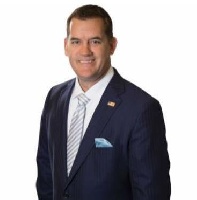Lakeland White Collar Crime Lawyer, Florida
Sponsored Law Firm
-
 x
x

Click For More Info:
-
Joseph A. Gasparro, PA
813 Jackson Rd Jacksonville, FL 32225» view mapCriminal Defense Law Serving the Best Interests Of Our Clients
When you need accurate representation for criminal defense issues, Joseph Gasparro is there for you.
800-971-8621
Todd Marks
✓ VERIFIEDWhite Collar Crime, Wills & Probate, Car Accident, Limited Liability Companies, Real Estate Other
Life is a Journey, sometimes you need an attorney. Call us Today we can help
Prior to forming the law office of Westchase Law, P.A. and Westchase Title, LLC in Tampa, Florida, C. Todd Marks attended the George Mason School of L... (more)
John Gerald DeLancett
Landlord-Tenant, Real Estate, White Collar Crime, Banking & Finance
Status: In Good Standing
Ana C. Francolin
Banking & Finance, Employment, Construction, White Collar Crime
Status: In Good Standing
FREE CONSULTATION
CONTACTThomas C. Grajek
Traffic, White Collar Crime, Felony, DUI-DWI, Criminal
Status: In Good Standing Licensed: 31 Years
Jeffrey C. Blumenauer
Administrative Law, Civil Rights, White Collar Crime, Divorce
Status: In Good Standing
David Elbert Little
US Courts, White Collar Crime, RICO Act, Criminal
Status: In Good Standing Licensed: 14 Years
 Joseph Gasparro Jacksonville, FL
Joseph Gasparro Jacksonville, FL AboutJoseph A. Gasparro, PA
AboutJoseph A. Gasparro, PA Practice AreasExpertise
Practice AreasExpertise

